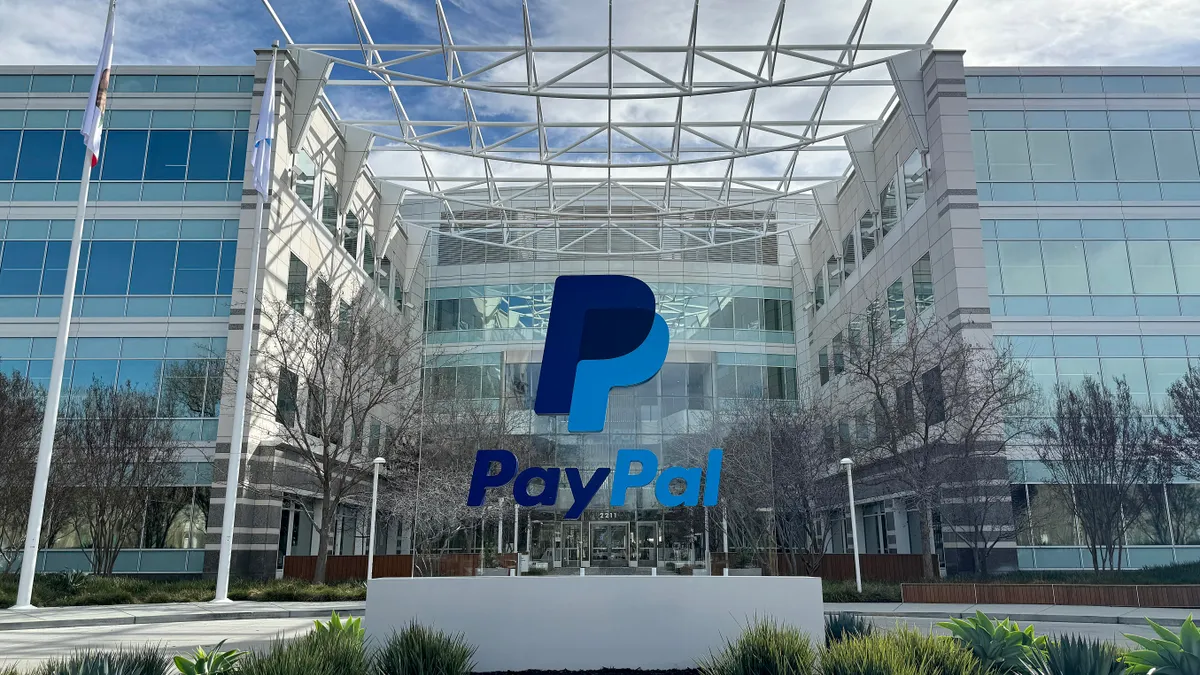A looming U.S. recession and inflationary concerns are pressuring companies to get a better grasp on their payment networks, and to control costs.
Former Braintree and PayPal executive Klas Bäck sees that as an opportunity for Pagos, a startup he co-founded in 2021. Pagos offers data-driven, subscription software tools for merchants to track and optimize their digital payment processing operations.
The Los Angeles-based company is expanding its engineering staff after announcing a $34 million venture funding round last month, said Bäck, who is CEO of Pagos. The company has 40 employees.
Pagos aims to add 10 new jobs over the next several weeks across the company, and 20 total by the end of the year, the CEO said.
Investors have made a series of recent early-stage bets on companies focused on optimizing a merchant's existing payment infrastructure through data analysis and automated tools. Large payment processors are expanding their merchant tools as well, creating potential competition as corporations tighten spending on software in response to concerns about the economy and inflation.
Pagos can assist merchants in seeking cost savings, as well as a reduction in payment errors that lead to lost revenue and customer churn, Bäck said.
The needs of the company’s clients have changed. “A year ago, it was often more: ‘What do I need to get the next buyer?’” he said. “Now it’s, ‘How can I optimize the business I have already and squeeze out better performance?’”
Pagos does not touch payments directly. Its software is instead designed to be integrated into a company's existing operations, where it can analyze data coming through processors such as Adyen, Stripe and PayPal to track authorization rates, chargebacks and processing costs, among other metrics.
The company’s clients include software company Adobe, crowdfunding website GoFundMe and entertainment giant Warner Bros. Discovery.
Bäck and Chief Product Officer Albert Drouart (also a Braintree/PayPal veteran) co-founded the company as digital payments were surging in response to the pandemic. Bäck said that he saw a clear shift in the payments needs of businesses. Companies are going global faster and selling across more channels — without always having a clear picture of their operations.
“With more complexity, there is the opportunity to optimize payments infrastructure,” Bäck said. “The inability to execute (a payments strategy) can have much bigger consequences than five or 10 years ago.”
Other early-stage startups have recently raised money to target the niche, too, despite the overall slowdown in venture capital funding. Butter Payments, which offers software tools it says reduce churn for subscription-focused businesses, raised $22 million in January. The startup Ledge last month raised a $9 million seed round for further development of its automated software products, aimed at enabling merchants to “tame payments chaos.”
Large processors are adding new services as well. Fiserv launched a data service for merchants using its Carat operating system in September. Brandy Wood, the payment processor’s head of Carat client experience products, told Payments Dive at the time that, in response to concerns about the economy, “all of our clients are looking to do more with the resources they’re already leveraging.”
Advances in machine learning and artificial intelligence have allowed processors to create more sophisticated solutions aimed at increasing authorization rates and reducing fraud, said Jareau Wadé, an industry consultant and author of the fintech-focused newsletter Batch Processing. The competition has been particularly intense between Stripe and Adyen, he added.
That could make third-party intelligence or optimization tools a harder sell, if some of the capabilities are already offered directly by processors. But about 60% of merchants use multiple payment processors, according to an S&P Global Market Intelligence survey last year.
That could be to the advantage of startups that can offer the kind of intelligence provided by software providers Stripe and Adyen, and extend the capability over merchants’ entire suite of vendors, said Wadé, a former chief growth officer at payments processor Finix.
Asked about competition, Bäck said Pagos tools can complement those offered by processors or other vendors by identifying issues merchants are facing and recommending solutions. Pagos also sells some of its software tools directly to other payments infrastructure companies, including fraud prevention specialist Ravelin.
Pagos declined to disclose its revenue or valuation, based on the latest investment. The company has raised $44 million in venture funding, with its latest round led by Arbor Ventures.


















